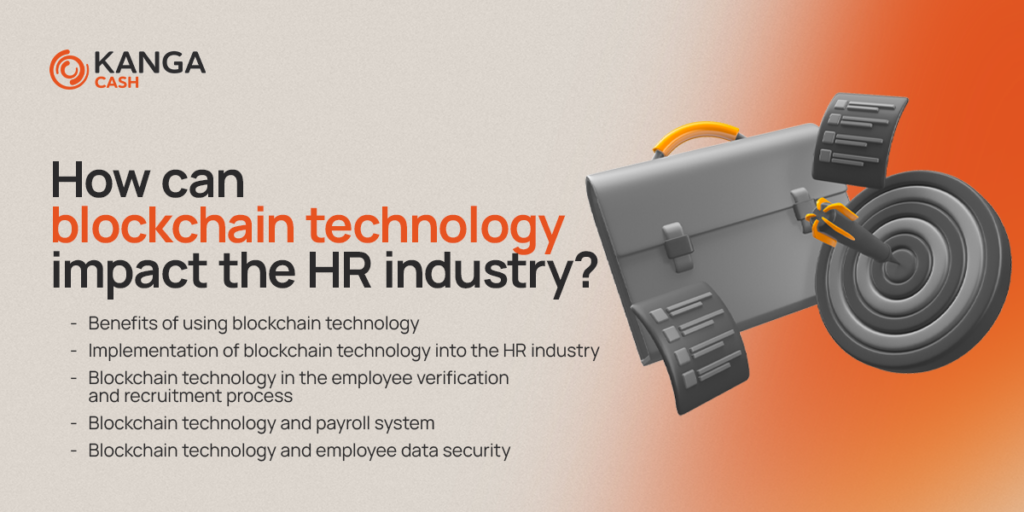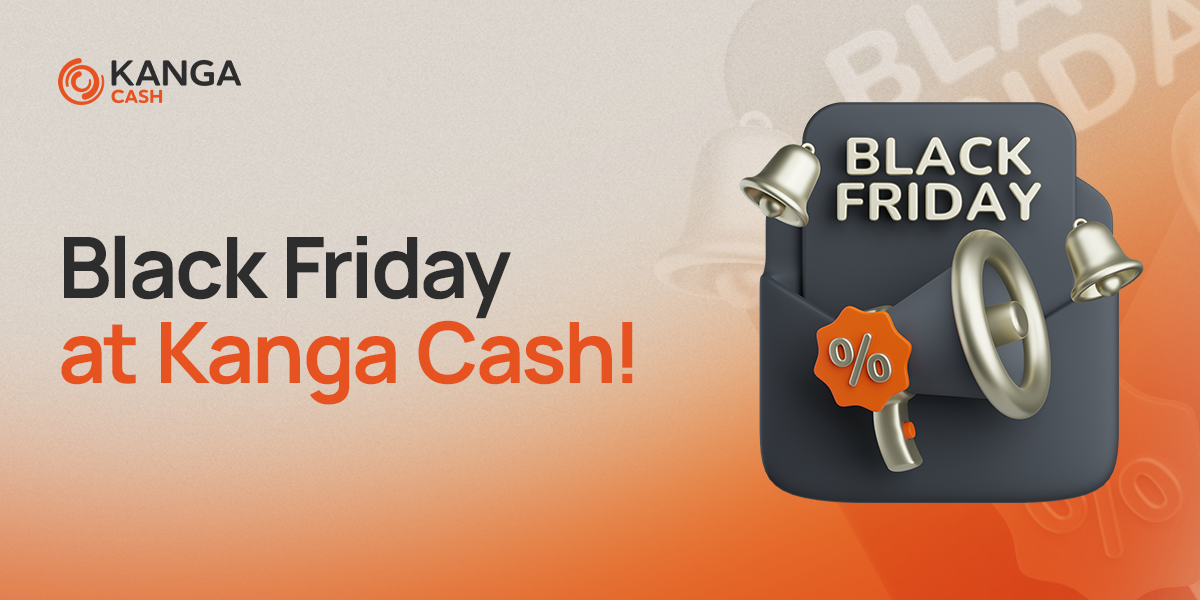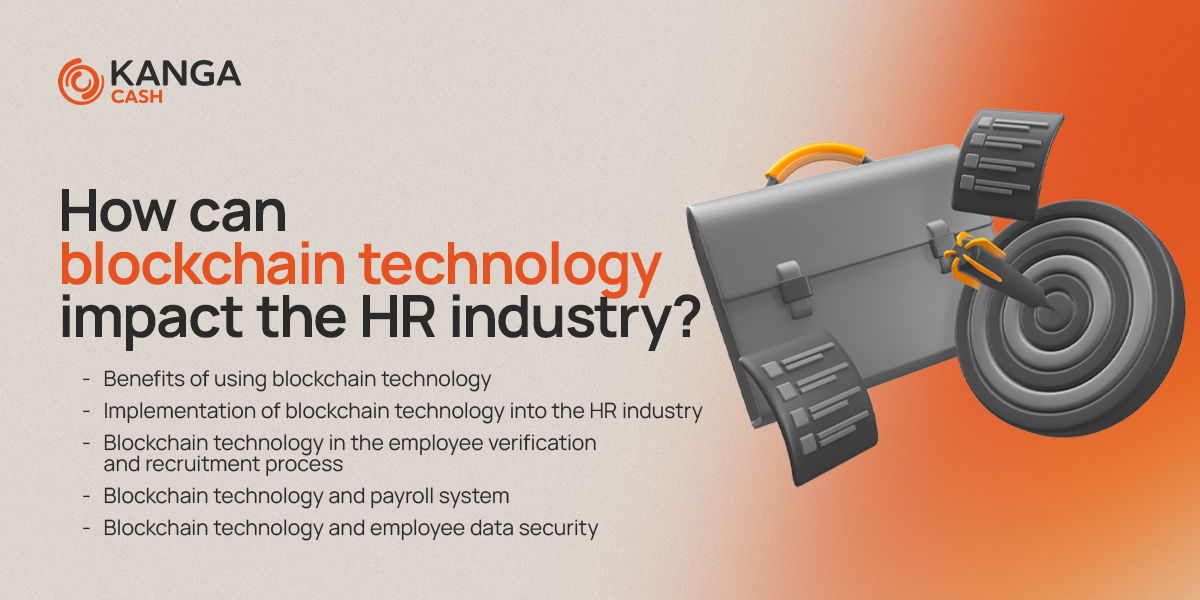How can blockchain technology impact the HR industry?

Can blockchain revolutionize the HR industry? More and more companies are starting to consider and test the use of a given technology. Already, representatives of many business sectors believe that it is worth paying attention to blockchain, because it is expected to have a significant impact on our future. In the field of human resources management, it can facilitate many tasks, increase efficiency by automating certain activities and ensure data security. More details on this later in the text!
Benefits of using blockchain technology
Recently, we’ve been hearing a lot about blockchain and its enormous potential. It is a technology that is constantly evolving and can introduce revolutionary changes in various sectors. Companies around the world are already starting to become interested in it and implement it into their activities. They are trying to understand how they can use blockchain to improve processes, increase data security, reduce costs and provide new services.
It is worth noting that nowadays blockchain is no longer only related to the world of cryptocurrencies. It is a relatively new phenomenon, but its impact on many business sectors can already be seen, from finance to supply chains, the medical industry and HR. Therefore, it is worth following the developing applications of blockchain, because it is predicted that it may have a significant impact on our future.
It is worth understanding that blockchain can change the way we process and share data, which has the potential to increase efficiency, security and transparency in many aspects of life and business. However, as with any new technology, there are challenges to overcome, such as regulatory issues. Organizations and authorities must adapt regulations and standards to the new opportunities offered by blockchain. It is important to create an appropriate legal framework that will protect consumers, investors and market participants.
Implementation of blockchain technology into the HR industry
The adoption of blockchain technology in the field of human resource (HR) management may be limited at present, but applications of the technology are becoming more common in other areas, especially financial management. There are areas, such as payroll, where blockchain can bring benefits in terms of security and efficiency, which is also important for the HR industry.
In a December 2019 report titled “Trending Tools and Technologies in HR” by benchmarking association APQC, 82% of organizations already had at least some understanding of blockchain, but only 11.7% were implementing blockchain-based HR technology. However, interest was growing, with 74% of organizations considering, experimenting with, or piloting blockchain. This data indicates that interest in blockchain-based HR technology has been developing for some time and many companies and organizations see great potential in it to improve their system.
Blockchain is a distributed transaction recording technology that is verified and recorded in a way that makes it difficult to tamper with the data. This means that people who do not know each other can directly share data and conduct transactions, including financial ones, without the need for intermediaries. The main benefits of using blockchain include trust, privacy, security, data integrity and transparency.
In the HR field, this technology has the potential to solve various problems such as employee verification, payroll management, recruitment and contract management. In turn, according to the already mentioned APQC organization, the three main factors influencing the implementation of blockchain technology in HR are: the need to increase the transparency of transactions, acceleration of transactions by shortening settlement times, automation or simplification of business processes related to human resources management, which may lead to greater efficiency and time savings.
Blockchain technology in the employee verification and recruitment process
How can blockchain improve the work of people who verify potential employees? Checking candidates’ qualifications and conducting recruitment is one of the main challenges in the field of HR. Current methods of verifying information such as education, professional experience or acquired skills are based on monotonous and manual processes.
Companies often also use the services of intermediaries to verify candidates, which means additional recruitment costs that can be reduced thanks to blockchain verification. Moreover, procedures of this type are often time-consuming and may cause delays and errors. That is why we are looking for technological solutions that can improve recruitment and selection.
Introducing blockchain technology to the candidate verification process can significantly simplify it and, above all, automate it. This means significant time savings and the reduction or elimination of errors. The use of blockchain will also enable data to be stored and verified in a more secure manner.
Thanks to blockchain, companies could create immutable and indisputable records of employee information. Any qualification, certificate or achievement can be stored as a digital asset on the blockchain, which means that the data is safe and immutable. This can definitely help combat false information and makes it easier for employers and recruiters to verify employee qualifications.
On the other hand, candidates could also use blockchain technology to secure their identity and provide virtual references, such as diplomas, certificates or other confirmation of acquired skills. Thanks to blockchain, these documents become safe and, most importantly, difficult to forge. This, in turn, can result in greater trust among recruiters because they can be sure that the data provided is authentic.
Blockchain technology and payroll system
What else can blockchain technology change in HR responsibilities? It turns out that payroll is one of the most promising applications of this technology. It can facilitate the management of employee benefits, salaries and benefits, among others, using smart contracts. HR departments can use smart contracts to automate the process of distributing benefits and remuneration based on predefined criteria.
The use of blockchain technology seems to be particularly useful in the area of international payments. This is important for contractors and gig economy workers who often work in multiple markets and need international payments. As we know, transfers between countries can be expensive and take much longer than traditional ones. This may be a significant obstacle in the context of timely transfer of remuneration. Blockchain technology would solve this problem by enabling international payments using cryptocurrencies or other blockchain-based solutions.
The introduction of blockchain technology can not only reduce the administrative burden on HR workers, but also ensure that employees receive benefits and salaries on time and accurately. This makes payment management more effective and transparent, and eliminates the risk of human errors. Therefore, it can be concluded that blockchain or smart contracts have the potential to revolutionize the way companies manage employee benefits and salaries.
Blockchain technology and employee data security
It is worth noting again that one of the foundations of blockchain technology is security. This, in turn, is extremely important when managing a lot of data. Given the role of HR departments in managing a large number of financial transactions and the responsibility for storing sensitive personal data, the benefits of using the technology discussed here can be enormous.
Cybersecurity risks often result from a lack of adequate security and transparency in systems. This means it is difficult to track who has access to which information and what changes are made. Blockchain, as a distributed ledger, offers greater transparency and data integrity. Additionally, all transactions are recorded on the blockchain, which means any change is difficult to fake or hide.
It is worth mentioning the topic of small and medium-sized enterprises, which are often less prepared to combat cyber threats than large corporations. Typically, these types of companies have fewer financial and human resources that can be devoted to cybersecurity. In their context, the use of blockchain may provide an additional layer of protection against unauthorized access to sensitive data.


